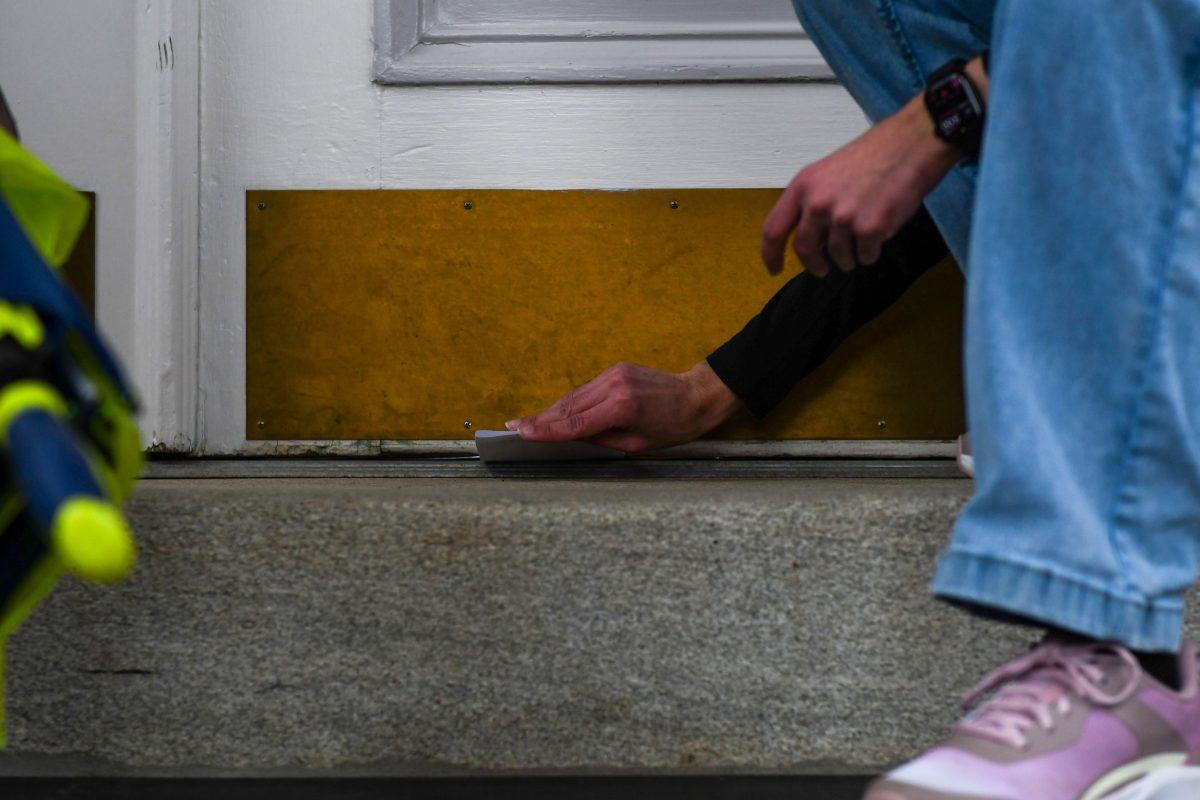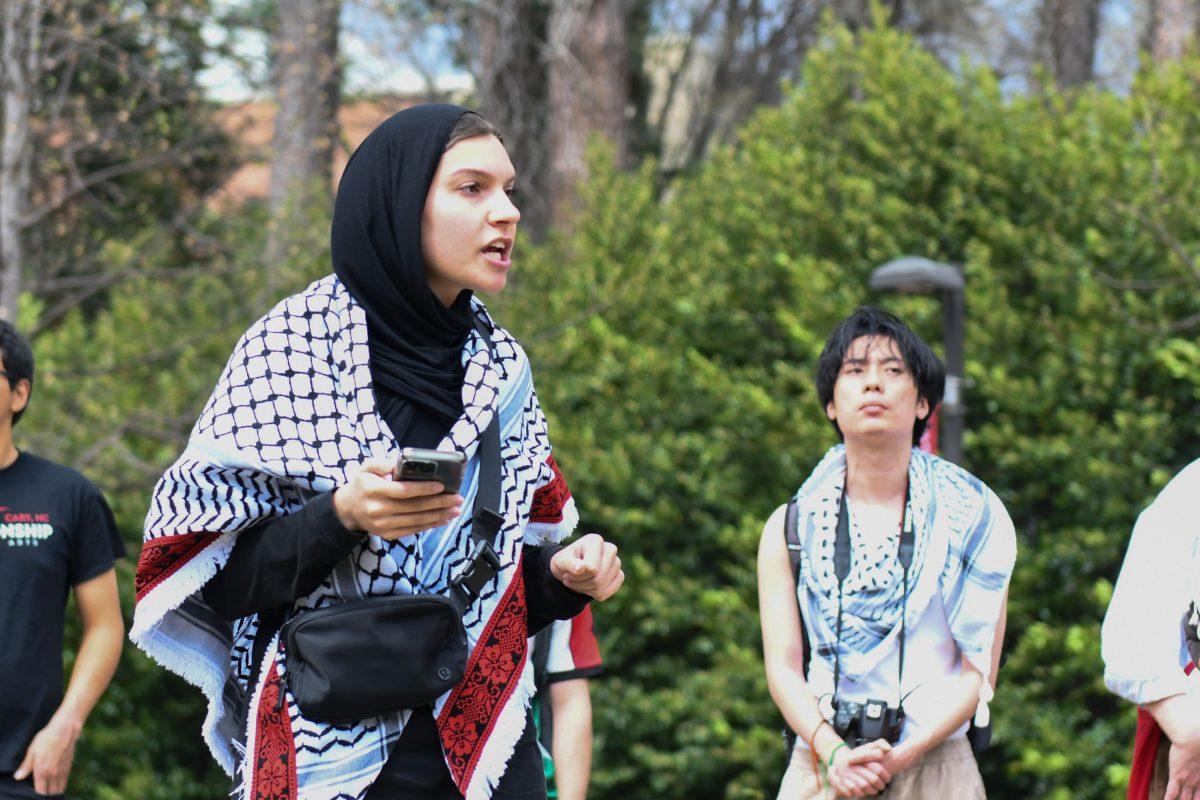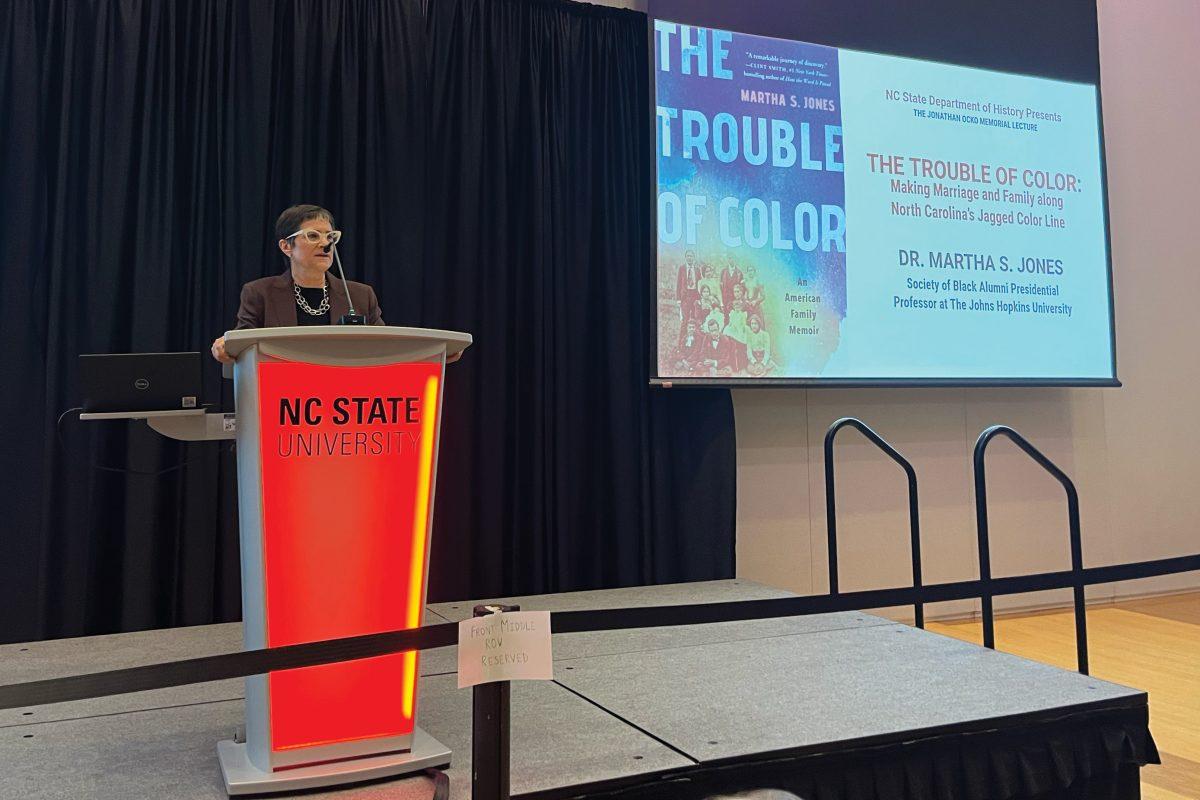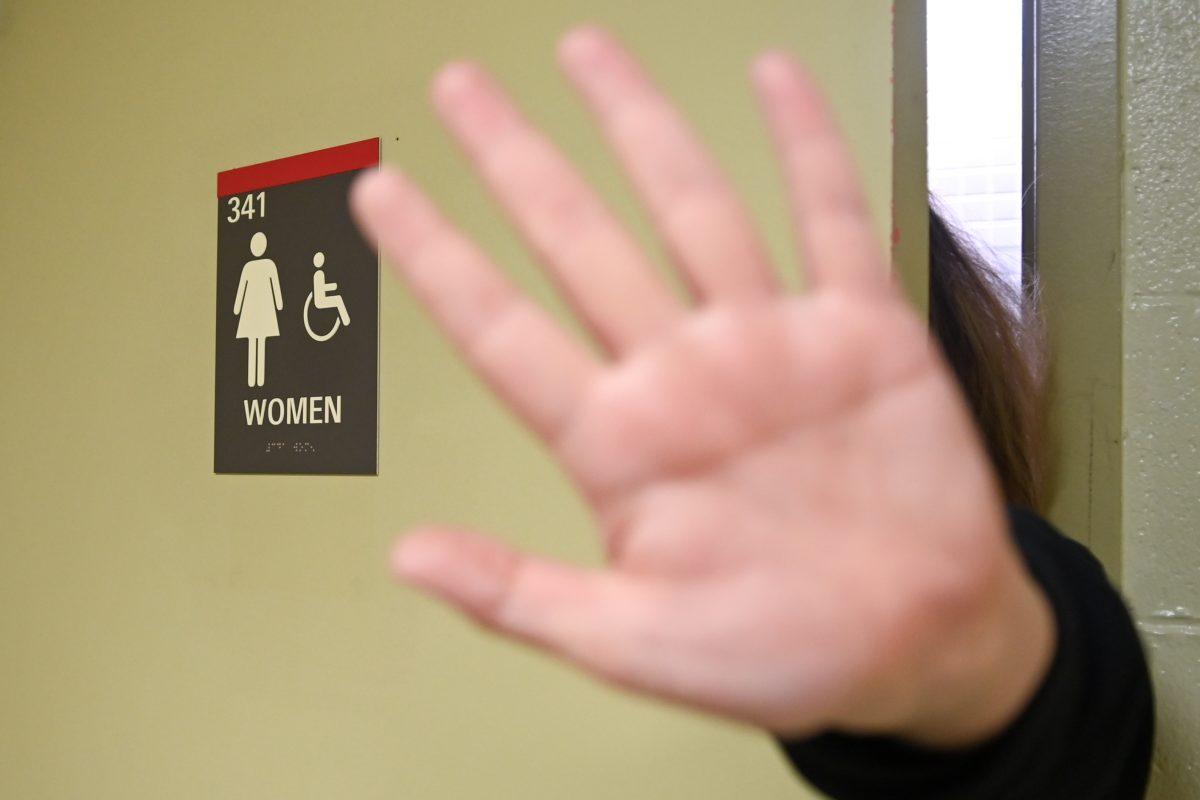Students and faculty gathered in Stafford Commons Thursday to protest the detainment of Columbia University student activist Mahmoud Khalil, a legal permanent resident, nearly two weeks ago by immigration officials.
Khalil, who was born in Syria to Palestinian refugees, played a significant role in student protests against Israel regarding its role in the Israel-Hamas War at Columbia, including at encampments that drew national attention. He was arrested in his university-owned apartment on March 8.
Khalil’s arrest is the first known instance of President Donald Trump’s crackdown on international pro-Palestinian student protesters after he signed Executive Order 14188, titled “Additional Measures to Combat Anti-Semitism,” which aims to “deport Hamas sympathizers and revoke student visas.”
The demonstrators, organized by the Graduate Workers Union, distributed and signed letters to University administration. The letters voiced their solidarity with Khalil, demanding NC State to institute a policy of non-compliance with federal immigration officials and refuse to permit ICE on campus without judicial warrants, before marching to Holladay Hall.
Upon arrival, the demonstrators found the door locked and slid letters under the door, accompanied by shouts demanding action from the university.
Juliette Majid, a graduate student studying chemistry and an organizer of the demonstration, said collective action is needed to protect all students’ rights.
“We need to be protecting as many students, faculty, staff and workers as possible, and now is the time for our university to stand up and fight back and push against the fascism of the United States government that we’re seeing with the Trump administration,” Majid said.
Majid said although Columbia has complied with the Trump Administration’s directives and potentially gave immigration officials access to Khalil’s campus apartment, the university is still facing pressure from the federal government, prompting questions about whether universities should always comply with federal directives.
“Columbia University did what the Trump administration wanted, and yet they are still facing hundreds of millions of dollars in federal funding cuts; abandoning, threatening and oppressing students, faculty and staff,” Majid said.
Majid called on NC State to take steps to protect international and undocumented students on campus.
“No one, no matter their citizenship status, should be targeted for their views,” Majid said. “That includes speaking out against Israel’s genocide and ongoing oppression of the Palestinian people.”
Jim Rice, a professor emeritus of applied ecology, said his faith and citizenship brought him to the demonstration.
“I want my university to do the right thing,” Rice said.
Rice said free speech is fundamental and should not be restricted based on comfort levels.
“They have to recognize that free speech is free all the time, everywhere, and that speech that makes some people uncomfortable cannot be squelched, that protesting against genocide, is not a crime — it’s not antisemitic,” Rice said. “Criticizing Israel or our government is covered under free speech, and it’s not antisemitic.”
As a faculty member, Rice said he feels an obligation to speak out on these issues.
“We’re part of a community here, and we cannot pretend that the University is not part of the fabric of our society, and so they have a role to play in how they invest their money and what they do with their students, what they allow their students to do and more importantly, don’t want them to do,” Rice said. “So I feel an obligation to speak up. I want to call our university to be the best version of itself, just like all the rest, I want them to think about what’s going on.”
Eric Martineau, a fourth-year studying environmental science, said NC State has lacked in its ability to listen to student protests.
“The biggest thing is just giving students the ability to talk, giving us the chance to listen — locking the door is very clear, it’s a very clear message,” Martineau said. “They’ve done it before. They did it with the PCBs back in November. They’re going to do it for the rest of time. It’s bad optics at the end of the day.”
Martineau described Khalil’s detention as “very clearly political.” He said he is concerned about the implications of Khalil’s arrest nationwide.
“If they’re able to redefine citizenship by saying he no longer is a citizen, even though he has all the right paperwork, it really does become a slippery slope, and plenty of fascist regimes … have done that before,” Martineau said. “Citizenship should have hard, fast rules, and when we are able to bend them and break the balance of powers between the three branches, it’s very dangerous.”
Khalil’s detention has significant implications for universities across the country, particularly in how they handle student activism and academic freedom while complying with federal directives. Majid said she hopes NC State will learn from past events, such as the crackdown of an encampment at UNC-Chapel Hill, and take steps to safeguard students’ rights to protest.
The University did not respond to Technician’s request for comment in time for publication.
Cami, a demonstrator, gives a passionate speech at the Free Mahmoud rally at Stafford Commons on Thursday, March 20th, 2025. Cami was part of Pal Youth NC, an organization comprising of Palestinian nationals in North Carolina that advocate for Palestinian liberation.













